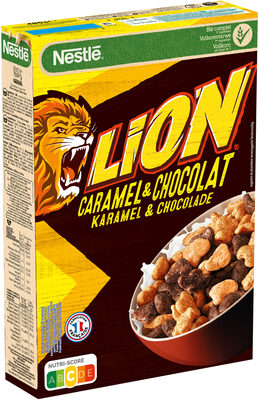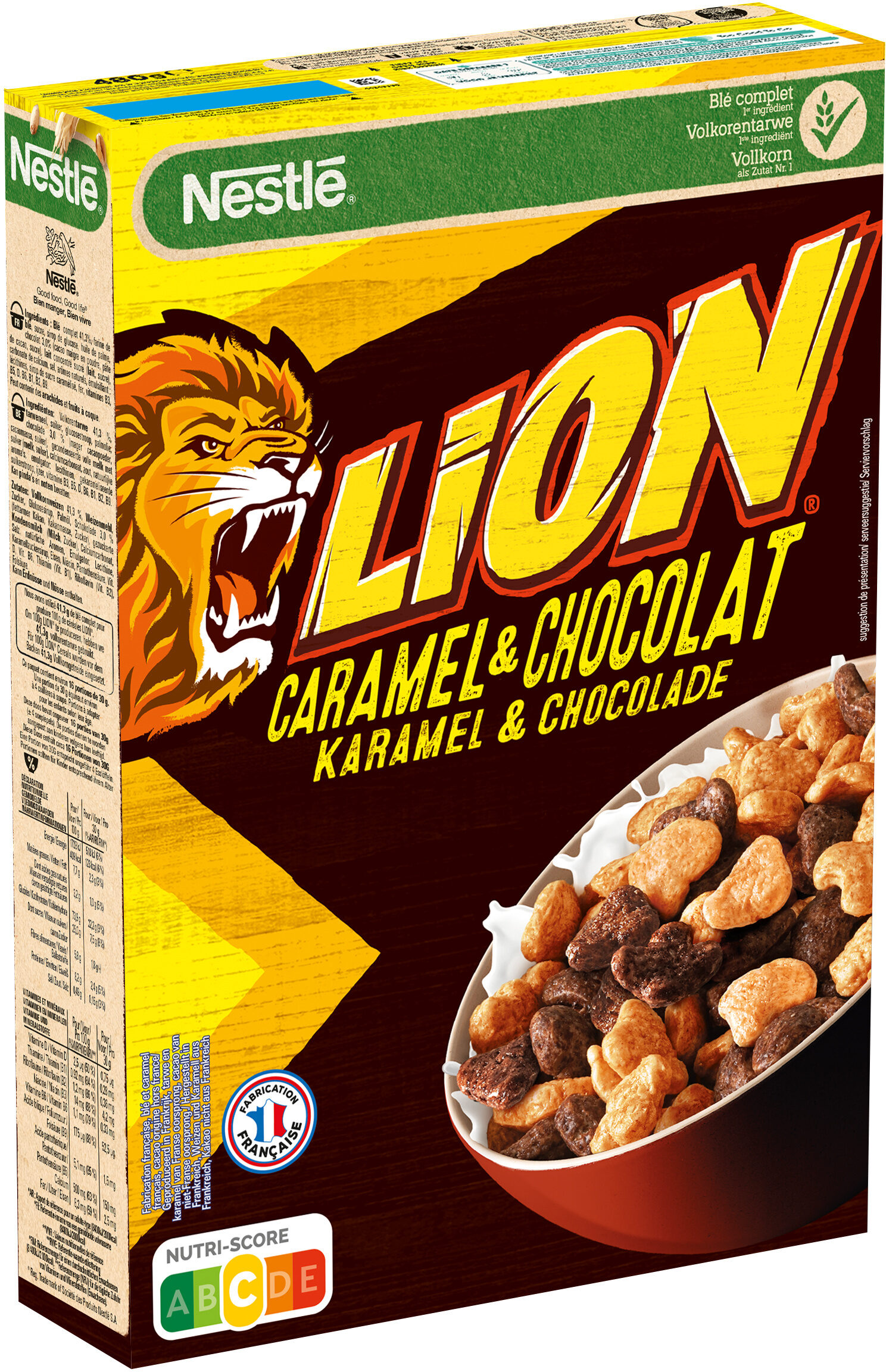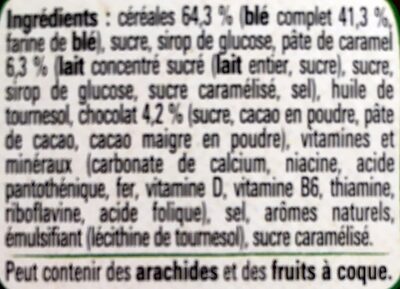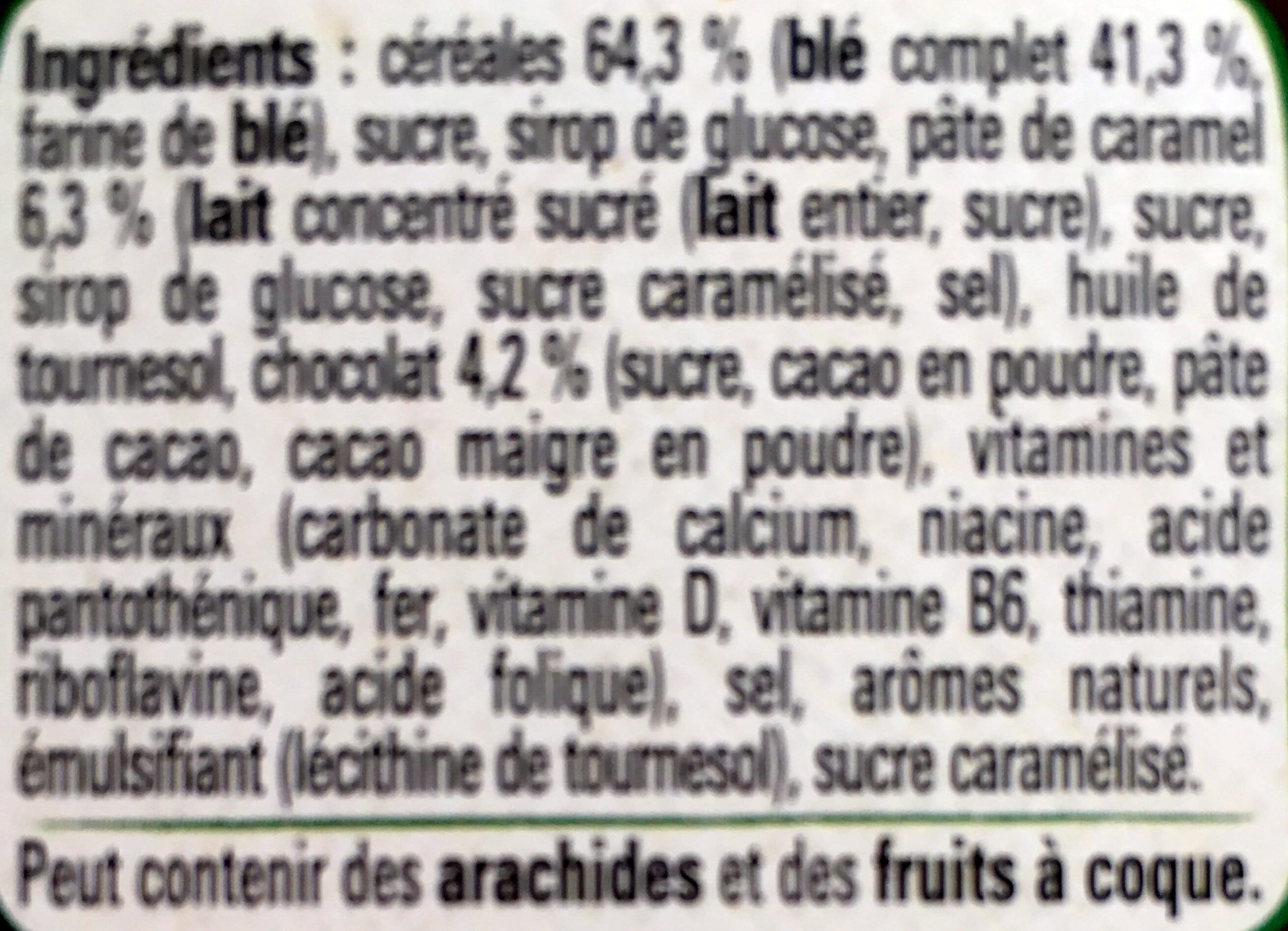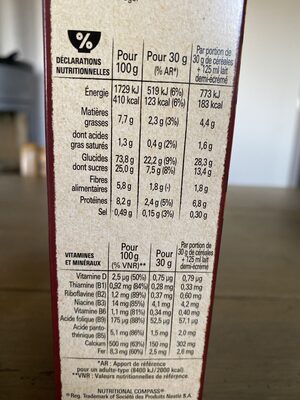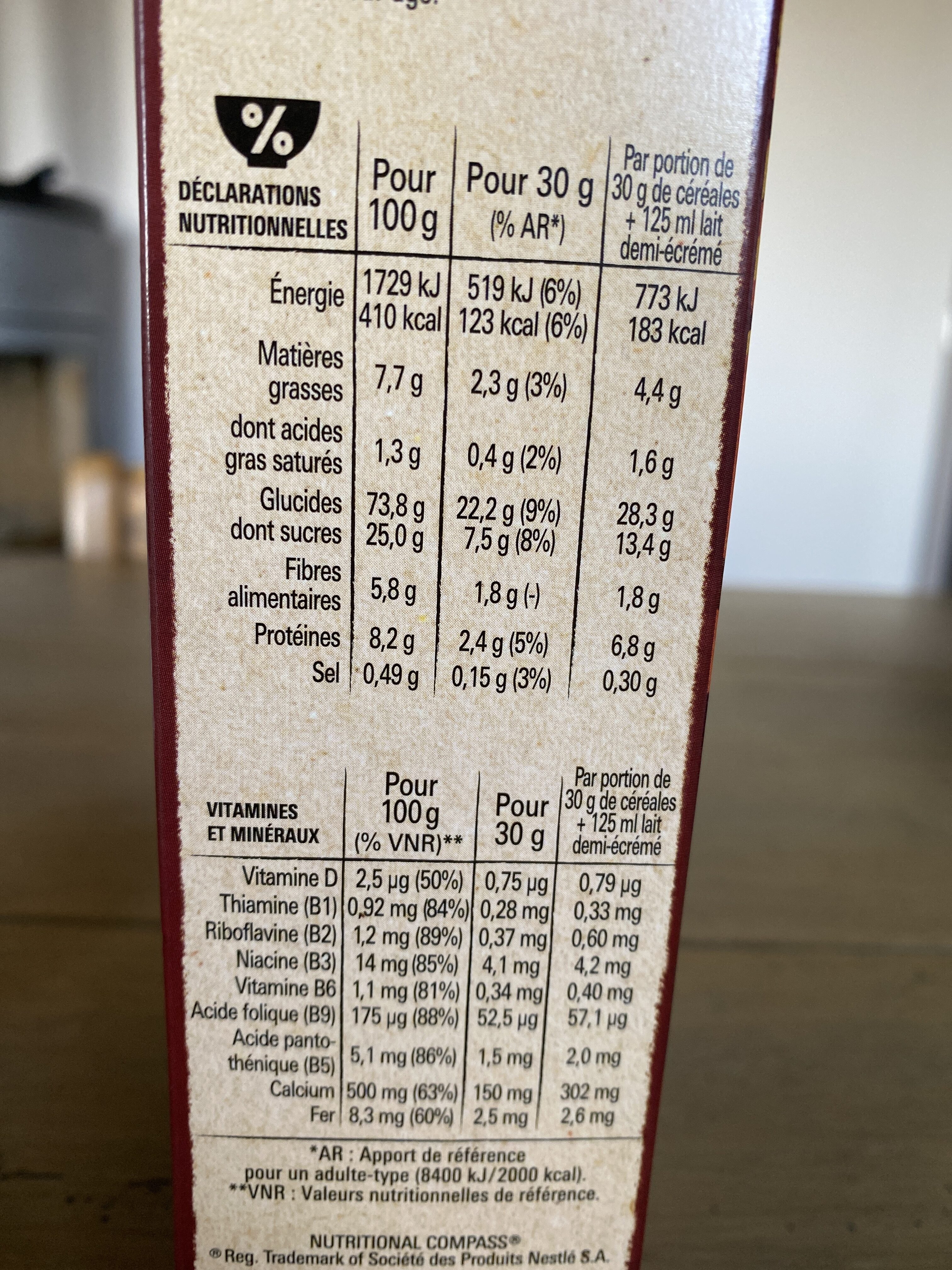Nestlé - LION Cereal Caramel & Chocolate, 480g (16.9oz) - 480 g
This product page is not complete. You can help to complete it by editing it and adding more data from the photos we have, or by taking more photos using the app for Android or iPhone/iPad. Thank you!
×
Some of the data for this product has been provided directly by the manufacturer NESTLE FRANCE. - Customer service: Contact form 0 809 400 412 (service gratuit + prix de l'appel)
Barcode: 7613032192570 (EAN / EAN-13)
Common name: Céréales prêtes à consommer, avec de la pâte de caramel (6,3%), aromatisées et sources de 7 vitamines, calcium et fer
Quantity: 480 g
Packaging: Box, fr:Boite carton, fr:Etui en carton, fr:Film en plastique, fr:Sachet plastique
Categories: Plant-based foods and beverages, Plant-based foods, Breakfasts, Cereals and potatoes, Cereals and their products, Breakfast cereals, Chocolate cereals, Extruded cereals, Cereals with caramel
Labels, certifications, awards:
No artificial flavors, Green Dot, No colorings, No palm oil, Nutriscore, Nutriscore Grade C, Triman, fr:Garantie-avec-du-ble-complet, fr:Personnage sur l'emballage

Origin of the product and/or its ingredients: Fabrication française, blé et caramel français, cacao origine hors France
Origin of ingredients: France
Stores: Intermarché, Leclerc, Carrefour, Framprix
Countries where sold: Belgium, France, Guadeloupe, Martinique, Morocco, Réunion, Switzerland, United States
Matching with your preferences
Environment
Carbon footprint
Packaging
Transportation
Threatened species
Other information
Preparation: Prêt à consommer
Conservation conditions: Une fois la date indiquée dépassée, les céréales peuvent légèrement perdre en qualité gustative mais peuvent encore être consommées si le paquet est resté dans un endroit frais et sec et si le sachet a bien été refermé après avoir été ouvert.
Customer service: Cereal Partners France, 34-40 rue Guynemer 92130 Issy-les-Moulineaux
Report a problem
Data sources
The manufacturer NESTLE FRANCE uses Equadis to automatically transmit data and photos for its products.
Product added on by openfoodfacts-contributors
Last edit of product page on by org-nestle-france.
Product page also edited by big-brother, cedric73, co-prnt, danis1597, date-limite-app, foodrepo, foodvisor, gmlaa, inf, jeanbono, julien27, kiliweb, levraime, lgz, magasins-u, manu1400, moon-rabbit, nouky20, off.981df469-548c-4ed2-80dc-95b6dcd68249, off.bdd21b8f-5bcc-46c7-ab9b-5248440086e6, openchris, openfood-ch-import, packbot, roboto-app, scanbot, sebleouf, stephane, sto, tacite, thaialagata, yuka.R0wwdkRyc3NsK0VybjlzWjJ6THU0OE40NTdXSVV6S3JOODhNSWc9PQ, yuka.U1o0blBxWWR2djB5Z1BNMTVEall4ZHRwN3IrRlh6S2VDdUVXSVE9PQ, yuka.UTRCYktma3UrL3NRbmZRWDRoMkZ4ZlJ4NUk2SERVV01Gc2tESWc9PQ, yuka.UUtRbE5wOFluL1V5cHZKajB3eUw0OTBzN1lXbkJXRzJOYm9SSWc9PQ, yuka.Ujc0eE5ZOVlnOXRVb3ZJZXBrN2MxTnhMMjdPdVgzam5NOXNhSVE9PQ, yuka.UzQ4Zk9wd2R1OVFqeXRvWi9EclB3dXRyMm9lRVFXZUlkL2diSVE9PQ, yuka.V1BrTVBZSWhqTm9PbE1VQ3BSblEvL1ZTOThMNEJ6Nm9KdElJSWc9PQ, yuka.V3A4QkU0ZGJscVVIdjlvUyt5aU53dEpXbWNPRURXTzJOOHNhSVE9PQ, yuka.VjVrUEtKMVEvZkEzcC9RQi9DTGUvczFsM29LcmRuK25CTmNKSVE9PQ, yuka.WGFRZFRMMENoZGdOb2MwQzVSUHB5TkY3MWEybFZrN3NKc29lSVE9PQ, yuka.YS84UENvY2huTndQbzhRTzVBbnkwZFZZMXBhSFYwZWJKZE15SVE9PQ, yuka.YlpnRU12UXpqT2dsdnM4Y3dRUDJ5dloxN002TVRVS1NEUGdLSVE9PQ, yuka.ZktrTVBia3YvOU5YbDhObjd3N3oxZmh5eG9LR0JHNkdJZUVVSVE9PQ, yukafix.
